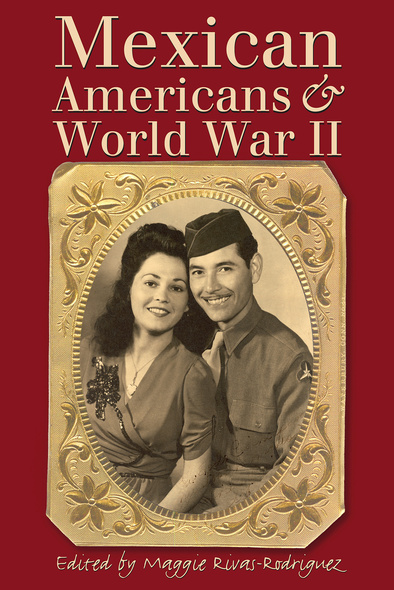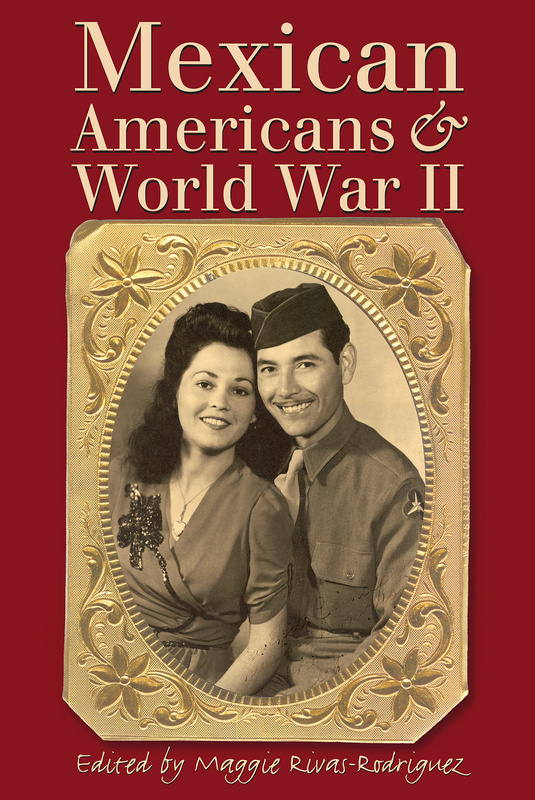Up to 750,000 Mexican American men served in World War II, earning more Medals of Honor and other decorations in proportion to their numbers than any other ethnic group. Mexican American women entered the workforce on the home front, supporting the war effort and earning good wages for themselves and their families. But the contributions of these men and women have been largely overlooked as American society celebrates the sacrifices and achievements of the "Greatest Generation." To bring their stories out of the shadows, this book gathers eleven essays that explore the Mexican American experience in World War II from a variety of personal and scholarly perspectives.
The book opens with accounts of the war's impact on individuals and families. It goes on to look at how the war affected school experiences; how Mexican American patriotism helped to soften racist attitudes; how Mexican Americans in the Midwest, unlike their counterparts in other regions of the country, did not experience greater opportunities as a result of the war; how the media exposed racist practices in Texas; and how Mexican nationals played a role in the war effort through the Bracero program and through the Mexican government's championing of Mexican Americans' rights. As a whole, the collection reveals that World War II was the turning point that gave most Mexican Americans their first experience of being truly included in American society, and it confirms that Mexican Americans of the "Greatest Generation" took full advantage of their new opportunities as the walls of segregation fell.
This text makes a valuable contribution to the growing literature on the Mexican American experience.
This book provides a much-needed resource for historians of World War II and as a historical backdrop to the generational origins of the Chicano civil rights movements.
Never in one book has the diversity of the wartime Mexican American experience been covered so fully.
This book as a whole is a very valuable one and the first significant scholarship on Mexican Americans in World War II.
Maggie Rivas-Rodriguez is Associate Professor of Journalism at the University of Texas at Austin. In 1999, she launched the U.S. Latino and Latina World War II Oral History Project, which has so far gathered more than 450 interviews. This book is, in part, an outgrowth of that research.
- Preface
- Introduction (Maggie Rivas-Rodriguez)
- Chapter 1. The Five Sanchez Brothers in World War II: Remembrance and Discovery (Rita Sanchez)
- Chapter 2. The Beating of Private Aguirre: A Story about West Texas during World War II (David Montejano)
- Chapter 3. On the West Side: A Portrait of Lanier High School during World War II (Julio Noboa)
- Chapter 4. Lost Momentum: World War II and the Education of Hispanos in New Mexico (Lynne Marie Getz)
- Chapter 5. The Mexican American Dream and World War II: A View from the Midwest (Dionício Valdés)
- Chapter 6. Zoot Violence on the Home Front: Race, Riots, and Youth Culture during World War II (Luis Alvarez)
- Chapter 7. What a Difference a War Makes! (Maria Eva Flores)
- Chapter 8. Framing Racism: Newspaper Coverage of the Three Rivers Incident (Maggie Rivas-Rodriguez)
- Chapter 9. Mexico’s Wartime Intervention on Behalf of Mexicans in the United States: A Turning of Tables (Emilio Zamora)
- Chapter 10. Rosita the Riveter: Welding Tradition with Wartime Transformations (Naomi Quiñonez)
- Chapter 11. On the Nation's Periphery: Mexican Braceros and the Pacific Northwest Railroad Industry, 1943-1946 (Erasmo Gamboa)
- Selected Readings
- About the Writers
- Index





